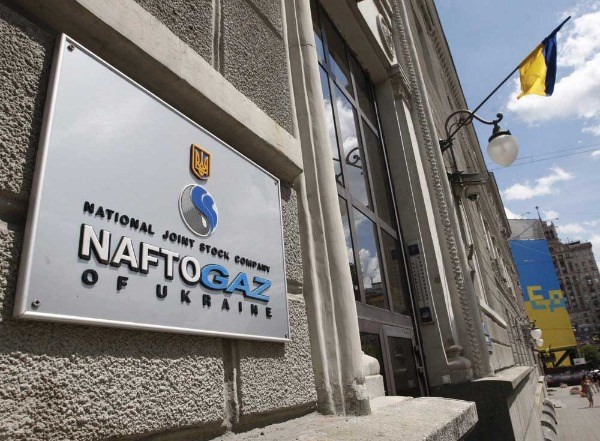Ukraine’s Naftogaz announces victory over Russia’s Gazprom in transit case in Stockholm Arbitration
Naftogaz reported that it has successfully sued Gazprom for $4.63 billion in a transit dispute at an arbitration court in Stockholm. After deducting payment for already supplied gas, the Russian company must pay $2.56 billion.
The Arbitration Institute of the Stockholm Chamber of Commerce has partially complied with Naftogaz’s demands, ruling that Gazprom must pay Naftogaz $4.63 billion for its under-delivery according to the transit agreement.
“Naftogaz was awarded damages of USD 4.63 billion for Gazprom's failure to deliver the agreed transit gas volumes. Gazprom will have to make a net payment of USD 2.56 to Naftogaz following the Awards in two gas Arbitrations,” Naftogaz’s statement reads.
Taking into account payment for already supplied gas (Ukraine owes Gazprom roughly $2 billion), Kyiv claims that the Russian company must pay $2.56 billion. The arbitration court also “dismissed Gazprom’s demands to fine Naftogaz for its sampled transit gas volumes”, according to Naftogaz’s Facebook page.
“We won!” Naftogaz commercial director Yuriy Vitrenko wrote on Facebook.
If the Stockholm arbitration court had met all of Gazprom’s demands, the Ukrainian company would have had to pay $81.4 billion (74% of Ukraine’s GDP). The $2.6 billion which Gazprom will have to transfer is equivalent to 2.3% of the republic’s GDP.
By Naftogaz’s calculation, the overall effect of the ruling is $3.1 billion – the compensation which Gazprom will have to pay (rounded to $2.6 billion) and the estimated saving of $0.5 billion due to the reduction of the price of Russian gas according to the court ruling.
Naftogaz is likely to agree to let Gazprom to pay what it owes in gas, East European Gas Analysis director Mikhail Korchemkin told RBC. He noted that Naftogaz has withdrawn a lot of gas from underground storage for the cold period. In addition, the arbitration court has ordered the Ukrainian company to buy a minimum of 4 billion cubic meters of Russian gas per year, under a “take or pay” clause. The price will be high, because it is a short-term contract, Korchemkin added.
The legal dispute between Gazprom and Naftogaz began in June 2014. It has two parts, and includes the parties’ demands concerning gas prices and supply volumes, as well as the conditions and tariffs on the transit of Russian gas through Ukraine. The Stockholm arbitration court made its final ruling on the first part of the dispute (the price of gas) in December 2017.
Gazprom demanded that Naftogaz repay its overdue debt for gas supplied in November-December 2013 and April-May 2014, in addition to a $56 billion fine for the gas shortfall according to the take or pay rule. However, Naftogaz achieved a retroactive revision of the gas price, compensation for overpayment and a lifting of the ban to resell gas. In the end, the Stockholm arbitration court ordered Naftogaz to pay Gazprom only $2 billion for the already supplied gas, as well as interest on the delay (0.03% per day since December 22, 2017). The court also reduced the contract’s annual purchase volume from 52 billion to 5 billion cubic meters, with the obligatory “take or pay” condition applying to 80% of this volume, i.e a minimum of 4 billion cubic meters per year until the contract expires at the end of 2019.
In the second part of the dispute, Naftogaz demanded a change in the method for calculating the transit tariff according to European standards, as well as compensation for the shortfall in the volume of transit gas. According to the contract, the minimum volume of gas which Gazprom must transport through Ukraine is 110 billion cubic meters per year. However, the average annual transit volume between 2009 and 2013 was 94 billion cubic meters. Naftogaz expected to receive a surcharge for transit between $6.5 billion and $16 billion, but Gazprom insisted on observing the contract terms – an indexed tariff for pumping 1,000 cubic meters 100 km.
Ukraine stopped purchasing gas from Russia in November 2015, and transitioned to getting its supply from European companies and traders. Naftogaz reported that it is willing to renew its purchasing of gas from Gazprom according to the volume specified by the court.
